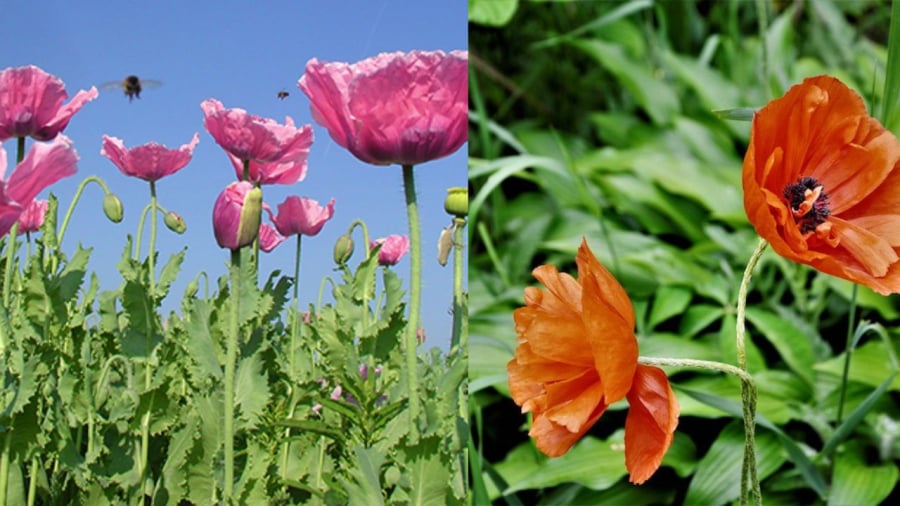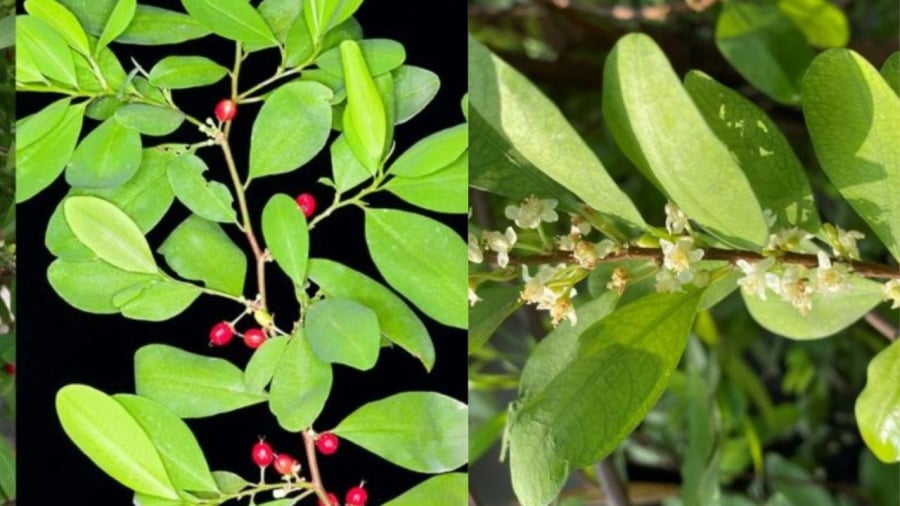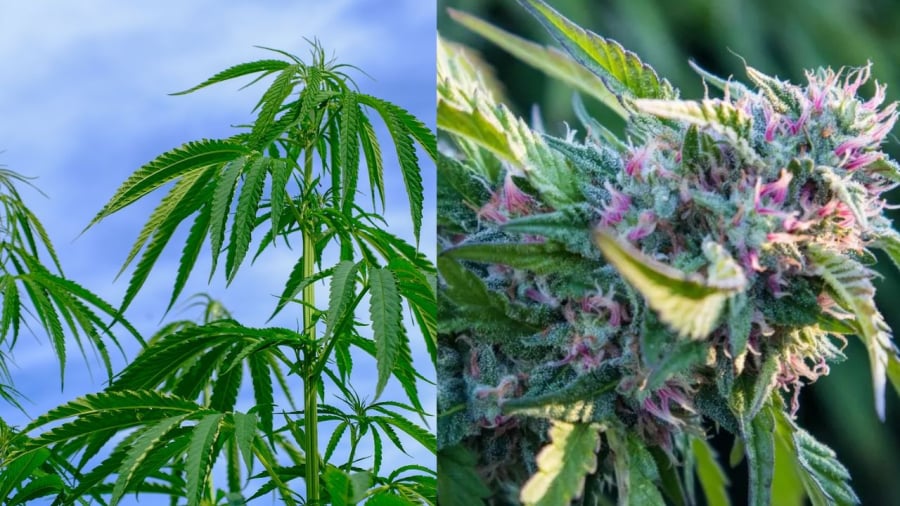Poppy Flowers
Poppies are beautiful flowers that can grow wild in certain places. Migratory birds may carry their seeds and spread them in unintended areas. In some countries, wild poppies become a natural beauty that many admire. The delicate and enchanting nature of these flowers captivates onlookers.
However, this plant contains a addictive substance. Therefore, in Vietnam, it is prohibited to cultivate this species. Even if they grow wild due to migratory birds bringing seeds to your home, they must be removed immediately.

Enchanting Flowers, but Forbidden
Poppies enchant with their beauty, but consuming or inhaling them can stimulate the central nervous system and lead to addiction. So, it’s best to resist their allure.
The scientific name for the poppy is Papaver somniferum L. In Vietnam, this plant is also known as the opium poppy.
Coca Bush
The coca bush, scientifically known as Erythroxylon coca, is also a plant that contains addictive substances. This species is prevalent in the Americas.

A Plant Forbidden to Cultivate
Its components can be addictive, so the Vietnamese government prohibits its cultivation.
Cannabis
Cannabis, or Cannabis Sativa, is another plant with addictive qualities, thus earning its place on the list of prohibited plants.

The Devastating Consequences of Growing These Plants
According to Vietnamese law, cultivating plants containing addictive substances is illegal.
Clause 6, Article 2 of the 2021 Law on Drug Prevention and Control, defines plants containing narcotic substances as opium poppy, coca, cannabis, and other plants as specified by the government.
Clause 1, Article 5 of the same law, states that the following acts are prohibited: cultivating plants containing narcotic substances and instructing others to cultivate such plants.
Offenders may face fines or imprisonment, depending on the severity of their actions. Therefore, it is essential to stay away from these plants to avoid legal troubles.
Moreover, these addictive plants, when grown indoors, can ignite a powder keg of social vices and destroy family values. The stimulating and addictive nature of these substances has led to countless broken homes. Growing these plants invites disaster and leads to familial decline.
In feng shui, plants with addictive substances are also considered unfavorable as they can negatively influence an individual’s spirit, intellect, and character.
Second, Ricinus communis, or Castor Bean plant, produces seeds that are extremely toxic. A single seed contains enough ricin toxin to kill an adult. Symptoms of ricin poisoning include severe diarrhea, dehydration, and kidney failure.
Lastly, Nerium oleander, or Oleander, is a popular ornamental shrub with toxic leaves, flowers, and nectar. Oleander contains cardiac glycosides which can cause vomiting, irregular heartbeat, and even death if consumed.































